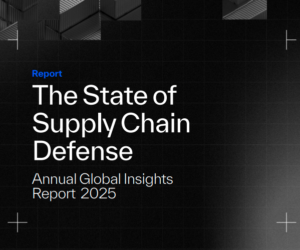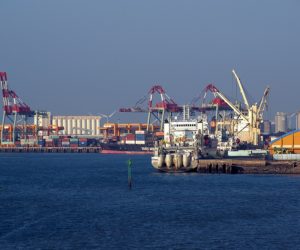
Sorry, your browser is not compatible with this application. Please use the latest version of Google Chrome, Mozilla Firefox, Microsoft Edge or Safari.
Supply Chain content

The State of Supply Chain Defense
BlueVoyant’s 2025 State of Supply Chain Defense report reveals how third-party risk management (TPRM) programs are evolving to meet the demands of the widening gap between investment and real risk…
Learn More


How Industrial Tenants Can Win In a Volatile...
Volatility has become a defining theme in today’s industrial real estate market. The transportation, manufacturing, and the overall supply chain industries have been turned upside down. This white paper explores…
Learn More


Executive Order 14324: Suspending Duty-Free De...
In response to persistent national security and public health threats—including the trafficking of illicit drugs—Executive Order 14324 suspends duty-free de minimis import privileges globally. The order targets shipments from Canada,…
Learn More


Privacy Impact Assessment for the Cybersecurity...
To safeguard the integrity of its technology ecosystem, DHS has implemented a comprehensive program to assess supply chain risks related to cybersecurity. This includes open-source research, vendor evaluations, and the…
Learn More


Analyzing Collusion Threats in the Semiconductor...
As global reliance on semiconductors intensifies, securing their supply chain has become a national imperative. This NIST paper introduces a framework for analyzing collusion-based threats, where adversaries from different stages…
Learn More


Executive Order 14364: Addressing Security Risks...
This executive order addresses growing concerns that price fixing and other anti-competitive practices are threatening the stability and affordability of the U.S. food supply. It directs the Department of Justice…
Learn More


Big Tech in Taiwan
As tensions rise in the Indo-Pacific, Taiwan has become a focal point for U.S. Big Tech companies navigating supply chain fragility and geopolitical risk. This report examines how firms like…
Learn More


U.S. Shipment of Goods
The 2022 Commodity Flow Survey highlights the dominance of trucking in the movement of goods across the U.S., accounting for over 8 billion tons—far surpassing all other transport modes. Rail,…
Learn More


Partnership for Indo-Pacific Industrial Resilience...
A new multilateral initiative is reshaping defense collaboration in the Indo-Pacific. The Partnership for Indo-Pacific Industrial Resilience (PIPIR) brings together 14 partner nations to strengthen supply chains, advance co-production efforts,…
Learn More


The Future of Open Source Security: A Trust-First...
Explore key takeaways from the ATARC + Chainguard roundtable in “The Future of Open Source Security: A Trust-First Approach to the Federal Supply Chain.” This whitepaper offers strategic insights for…
Learn More


U.S. Port Infrastructure: DOT and DHS Offer...
U.S. ports are vital to national and global trade, yet they face increasing threats from natural disasters. The Departments of Transportation (DOT) and Homeland Security (DHS) provide funding and resources…
Learn More


U.S. Import And Export Price Indexes: January 2025
Import and export prices saw notable shifts in January 2025, reflecting changes in fuel costs, global trade dynamics, and supply chain adjustments. U.S. import prices rose 0.3%, marking the largest…
Learn More


Workshop on Enhancing Security of Devices and...
Semiconductor security is at the forefront of ensuring the integrity of modern technology, from consumer electronics to critical infrastructure. The NIST workshop on supply chain security brought together industry, government,…
Learn More


Transportation Statistics Annual Report 2024
The Transportation Statistics Annual Report 2024 provides a detailed look at the state of the U.S. transportation system, highlighting key trends in infrastructure, safety, and sustainability. This 30th-anniversary edition explores…
Learn More


Research And Development Logistics Technology...
The Logistics Technology Research (LTR) program is revolutionizing how the Defense Logistics Agency (DLA) manages its supply chain. By integrating advanced technologies such as AI, blockchain, and digital twins, LTR…
Learn More


